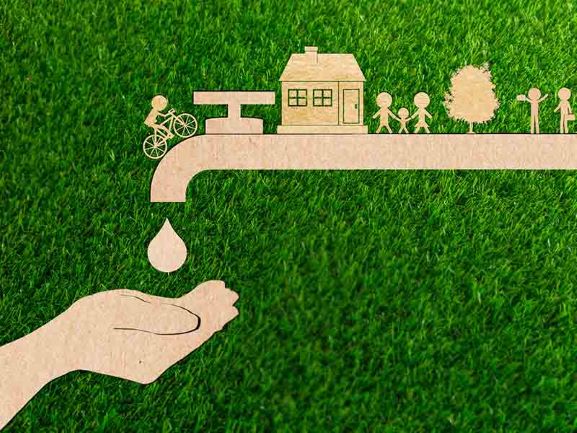

Acknowledging the need to keep a tight surveillance and monitoring of its precious groundwater resource, the government has commenced a major program of mapping its fast depleting groundwater reserves across the country.
India has 447 billion cubic meters of replenishable groundwater reserves, of which 60-70 percent is spent on irrigation. The government has begun mapping the groundwater reserves in a 24 lakh square kilometer (sq. km) mappable area, of which 10 lakh sq. km has already been mapped, and the rest will be completed over the next year.
The data would be useful in formulating policy regarding groundwater reserves and to utilise it carefully. Despite having major dams, dependence on groundwater has continued over the years. The following data says it all: around 85 percent of irrigation needs is met by groundwater; 80 percent of rural drinking water needs are met by groundwater while 55 percent of the urban drinking water source is groundwater.
[related_post]
While depletion of surface water is visible, in the form of shrinking or drying up water bodies like ponds and rivers, in the case of groundwater, it is invisible as it is deep underground. And it is not an infinite source of water, and its replenishment is slow.
Groundwater is a precious resource and the challenges of its fast depletion are being tackled by the government under the new Jal Shakti Ministry — the merged entity comprising the earlier Drinking Water and Sanitation, and the Water Resources and Ganga Rejuvenation ministries.
Indian water Minister, Gajendra Singh Shekhawat in an interview with a national daily said “we have asked CGWB (Central Ground Water Board) to expedite its work on aquifer-mapping. By the end of March 2020, we will develop a 3D diagram and plan for aquifer status and aquifer recharge module for all water-stressed districts.”
India’s per capita availability of water is 1,400 cubic meters per year, while it gets 4,000 billion cubic meters in the form of precipitation, like rain and snow. To avoid rainfall flowing off, localized rainwater harvesting is encouraged by the PMO and state public works department.
On the agriculture side, improving the water use efficiency of Dams to control leakages and lower evaporation of water can be worked on. Another factor to be considered is that water-guzzling crops like paddy, wheat and sugarcane use up 80 percent of the irrigation water, which means that the other crops like millets are able to survive on little water.
The Government of India also provides funds to states for water conservation/water harvesting through the MNREGA (Mahatma Gandhi National Rural Employment Guarantee Act), with Rs 60,000 crore being made available annually.
Micro-irrigation and drip-irrigation and recycling water are other measures that would receive focus. Using recycled sewage water for use in industries is another important step. Indian states where such measures are successfully running like Chennai, Bengaluru, Punjab can share their expertise and information with center and states, to make water conservation a theme behind every major policy.
1. The mandate for blending Compressed Biogas (CBG) with natural gas has come into effect…
Andhra Pradesh is striving towards greening its energy sector with quite some speed. In a…
With an objective to bolster India’s green energy goals, a Tripartite Agreement has been signed…
The Union MNRE Minister Pralhad Joshi launched the Green Hydrogen Certification Scheme of India (GHCI)…
India’s energy conglomerate Bharat Petroleum Corporation Limited (BPCL) has commissioned a 5MW green hydrogen plant…
In a historical development, the European Space Agency (ESA) has successfully launched its pioneering ‘Biomass’…